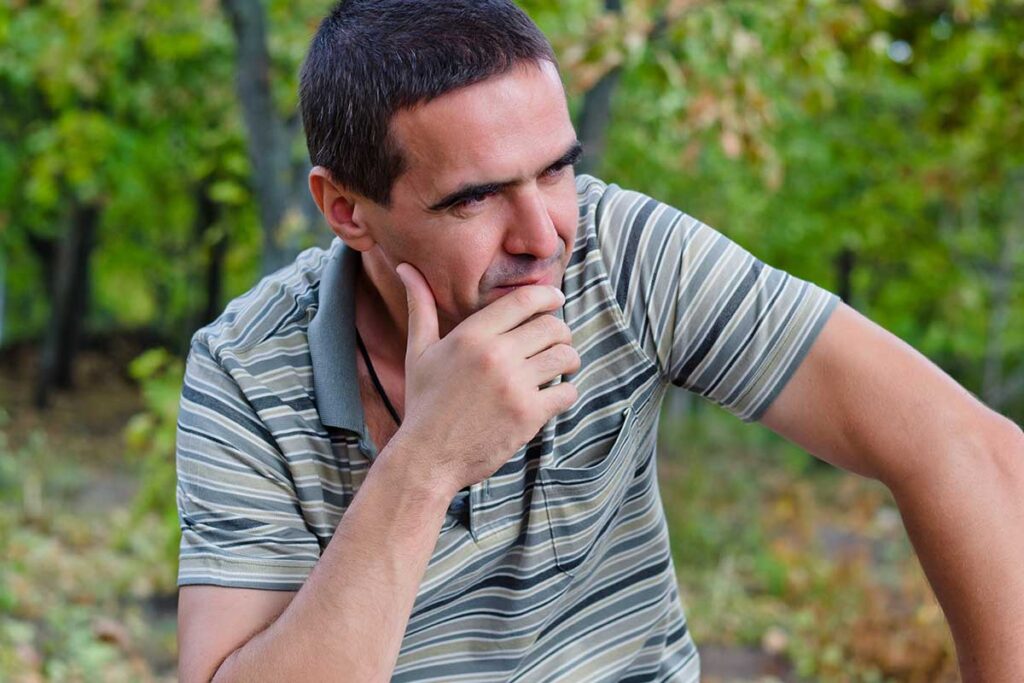Dry drunk may seem contradictory since a person cannot be dry and drunk simultaneously. Instead, the meaning of “dry drunk” refers to a person’s susceptibility to relapsing from sobriety. Understanding the symptoms of dry drunk syndrome is helpful to know if you or a loved one may be at risk of relapse.
The sooner you get help for dry drunk syndrome, the better the chances you can avoid derailing your recovery. My 5 Palms can help you strengthen your resolve to stay sober. If you recognize any signs of dry drunk syndrome, call 1.844.675.1022 to speak with someone from our caring and compassionate staff about how we can support recovery with our addiction therapy programs.
What Is the Meaning of “Dry Drunk”?
The definition of dry drunk syndrome is a condition where people recovering from alcohol addiction still exhibit similar behaviors to when they were drinking. So, why would someone sober continue to behave in unhealthy ways despite abstaining from alcohol?
People in recovery may develop dry drunk syndrome mainly because they have not addressed the underlying causes of alcohol addiction. If they quit drinking cold turkey at home and did not enroll in an addiction treatment program, they may not have received the therapy necessary to work through addiction triggers. Without treatment and the support of professionals, a person is much more susceptible to relapse.
What Are the Signs of Dry Drunk Syndrome?
Getting sober requires more than just quitting drinking since other problems are often beneath the surface. Dry drunk syndrome indicates that a person has not dealt with the emotional and psychological issues that led them to alcohol misuse in the first place. A person showing signs of dry drunk syndrome may be on the verge of relapse, so you should familiarize yourself with the following:
- Mood swings and irritability
- Skipping treatment sessions or support group meetings
- Showing resentment toward others who are successful in their recovery
- Making negative comments about sobriety
- Reminiscing about past drinking behaviors
- Expressing self-pity over being unable to drink
- Overall dissatisfaction with life
- Picking up other addictive habits like gambling, excessive spending, or binge eating
If your loved one shows any signs of dry drunk syndrome but does not receive the appropriate treatment, they are at a higher risk of relapse. Many people use alcohol to cope with stress and mental health conditions, so these issues must be dealt with promptly.
About Dry Drunk Syndrome Treatment
To successfully treat alcohol use disorder (AUD), a combination of medication, behavioral therapy, holistic therapy, and support needs to be implemented. You will not find this if you quit on your own, so you or someone you care about must enroll in a professional alcohol addiction treatment program.
For someone who has successfully abstained from alcohol but has dry drunk symptoms, treatment may focus on therapy and relapse prevention. Through addiction counseling, you can identify triggers to drink and find ways to eliminate them from your life or minimize their impact. You can also learn to restructure unhealthy thought patterns to instigate positive behaviors. If you are diagnosed with a co-occurring mental health disorder such as anxiety or depression, your treatment plan may include appropriate medications.
Get Help for Dry Drunk Syndrome in Florida at My 5 Palms
If you think someone in your life has dry drunk syndrome or struggling with alcohol addiction again, act fast to help them get back on track to recovery. Contact My 5 Palms today at 1.844.675.1022 to speak with someone from our caring and compassionate staff about scheduling an intake assessment and getting your loved one the support they need.

